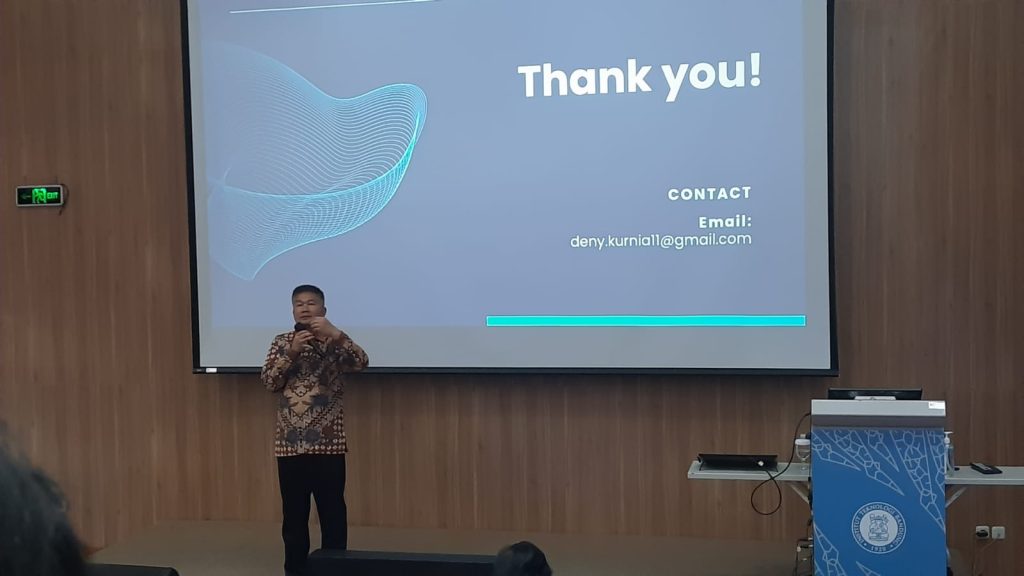In an increasingly connected and interdependent world, countries always exchange goods, services, and resources with other countries, creating a complex global trade network.
Therefore, mastering the art of negotiation and reaching agreements with other countries is crucial. Deny W Kurnia, Consul General at the Indonesian Consulate General in Shanghai, China, elaborated on the intricacies of these negotiations during a guest lecture on Integrated Business Asia at the SBM ITB, on October 25.
Denny highlights that international trade negotiations adhere to fundamental principles and concepts, with a primary focus on serving the interests of all parties involved
We need to identify the interests of our country and other countries. All stakeholders, such as investors, suppliers, and others, have preferences that must be considered. Keep in mind that we negotiate to achieve and fulfill goals. Besides, pay attention to the lowest common denominator, be the best among the worst, and implement the nature of freedom, openness, and fairness, which means establishing rules and regulations and creating a mutually beneficial, equal, comprehensive, modern, and high-quality relationship. While this concept provides a solid foundation, we must also recognize that several factors can hinder reaching a successful agreement.
Challenges or things you need to know, such as realizing that trade is only an element in the form of a tool for exchange, the more parties involved, the more complicated the negotiation process will be. Moreover, when the two countries’ attitudes are contradictory and not complementary, the level of development (promotion – negotiation – implementation) is quite complicated, domestic politics is distorted, and finally, there is the impression of begging for neighboring countries or being too dependent on other countries.
With the complex challenges that must be faced, it is essential to remember that this trade provides extensive opportunities. To understand the opportunity more deeply, the critical elements involved include aiming for prosperity, engines of growth and development, the increasing complexity of production systems, regionalism, strategic partnerships, and friendship. For example, ASEAN is progressing in trade agreements because the President has good relations with ASEAN countries. Lastly, the role of government in the country itself.
A comprehensive process is needed to achieve a successful political agreement and involves various stages, elements, and stakeholders. The process begins with a declaration of intent and establishes monitoring mechanisms and basic negotiating principles. Next, developing negotiating texts becomes the main focus, with the task of negotiating, bargaining, and advice from political experts.
Domestic consultations and reaching a compromise are crucial to reaching an adequate agreement. Once the agreed texts are finalized, a legal scrubbing process is required to comply with legal requirements. Then, applying national law or ratification is the next step to make the agreement legally valid. Finally, the entry into force of this agreement requires all parties to comply with the agreed provisions, emphasizing the importance of cooperation and the serious involvement of all parties involved in achieving common goals.
Current trends give us valuable insight into what the future may hold. Several indicators show that there will be multi-polarization, erosion of US leadership, developing countries, development gaps, digital, high technology, and an interconnected world. Therefore, the government’s role must be to facilitate all international trade activities. There are other actors who, of course, must understand the trends, such as industry associations or interested parties, which include industry players, parliament and politics, NGOs, international organizations, and lobby groups.





